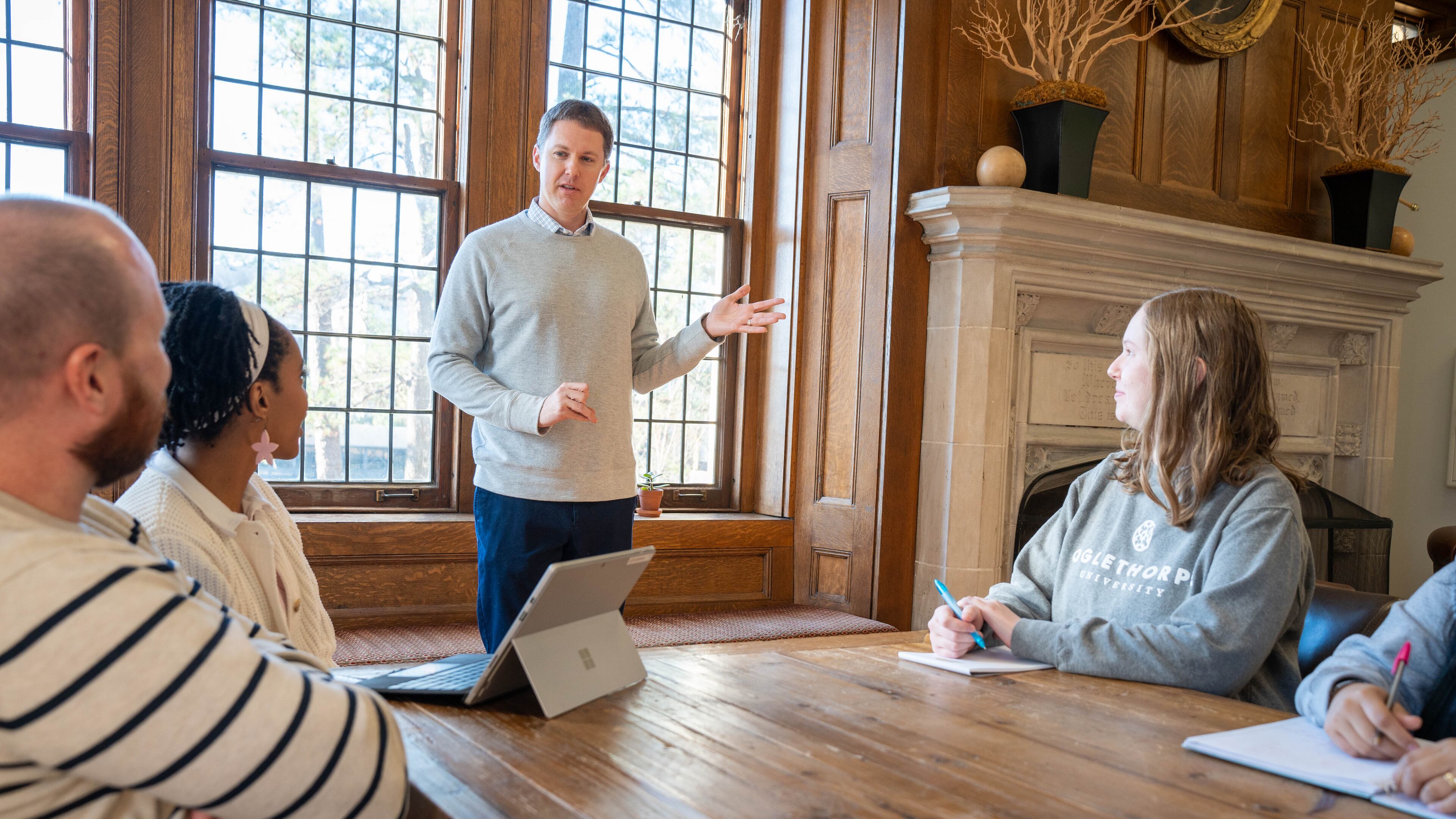Free workshop on federal student aid application preps parents, students

It won’t be long before college acceptance letters start showing up in the mail. Along with the anticipation is another question weighing heavily on the minds of many applicants: How are the tuition, books and board bills going to get paid?
Chris Summers, the financial aid director at Oglethorpe University, has a toolbox of suggestions he’ll share during a free workshop on Jan. 11. The event is open to anyone with questions, regardless of their interest in attending the Brookhaven school.
This isn’t the first time the university’s aid experts have encouraged students and families to bring their questions, especially around filling out the free application for federal student aid. But it might be one of the most meaningful.
“This year is different because FAFSA is different,” said Summers, who has been in Oglethorpe’s financial aid office for 11 years. “The changes are part of a two-year effort by the Department of Education to simplify the process. So the form was redone, and they’ve taken out some questions to make it as short as possible.”
Summers said that in dealing with students one-on-one, it became clear many have the same questions. That inspired the idea of sharing the answers with a broader audience beyond the campus.
“Financial aid can feel pretty intimidating for students and families, especially first-generation families,” he said. “We saw a need to help people through the process, and we’re trying to be part of the solution.”
Among the various issues Summers will address are common stumbling blocks to completing the application.
“If you’re not someone who works with financial language, filling out an application that’s asking for taxes paid, asset amounts, gross income and all that financial info can feel confusing and intimidating to the point that families don’t want to do it,” he said.
The application’s request for asset information can be particularly confusing, Summers said. “What do I include? The value of my house? Retirement assets? What counts, and what doesn’t? And similarly, there’s often confusion over parents and who has what, especially if parents are divorced.” (The general guideline is that assets include liquid funds such as savings and checking accounts, stocks and bonds. Retirement accounts are not included.)
Another hurdle of the old FAFSA form required students to complete it in close concert with their parents, whose information was to be submitted on the form’s reverse side – an arrangement that often was overlooked.
“I’d refer to the new process as a relay race,” said Summers. “The student logs in, completes the information, then passes it off to the next contributor – probably a parent. Then that person logs in and completes their section. The last person to add their information submits it.”
The process has also been streamlined by asking filers to allow access to their tax returns.
“Now, with a link between the IRS and the Department of Education, it will be easier to include that information,” said Summers.
The free Jan. 11 workshop will be held from 5-7 p.m. in-person on the Oglethorpe campus with a live feed available for remote viewers. Information is online at oglethorpe.edu/fafsa-filing-workshop.
SEND US YOUR STORIES. Each week we look at programs, projects and successful endeavors at area schools, from pre-K to grad school. To suggest a story, contact H.M. Cauley at hm_cauley@yahoo.com or 770-744-3042.

